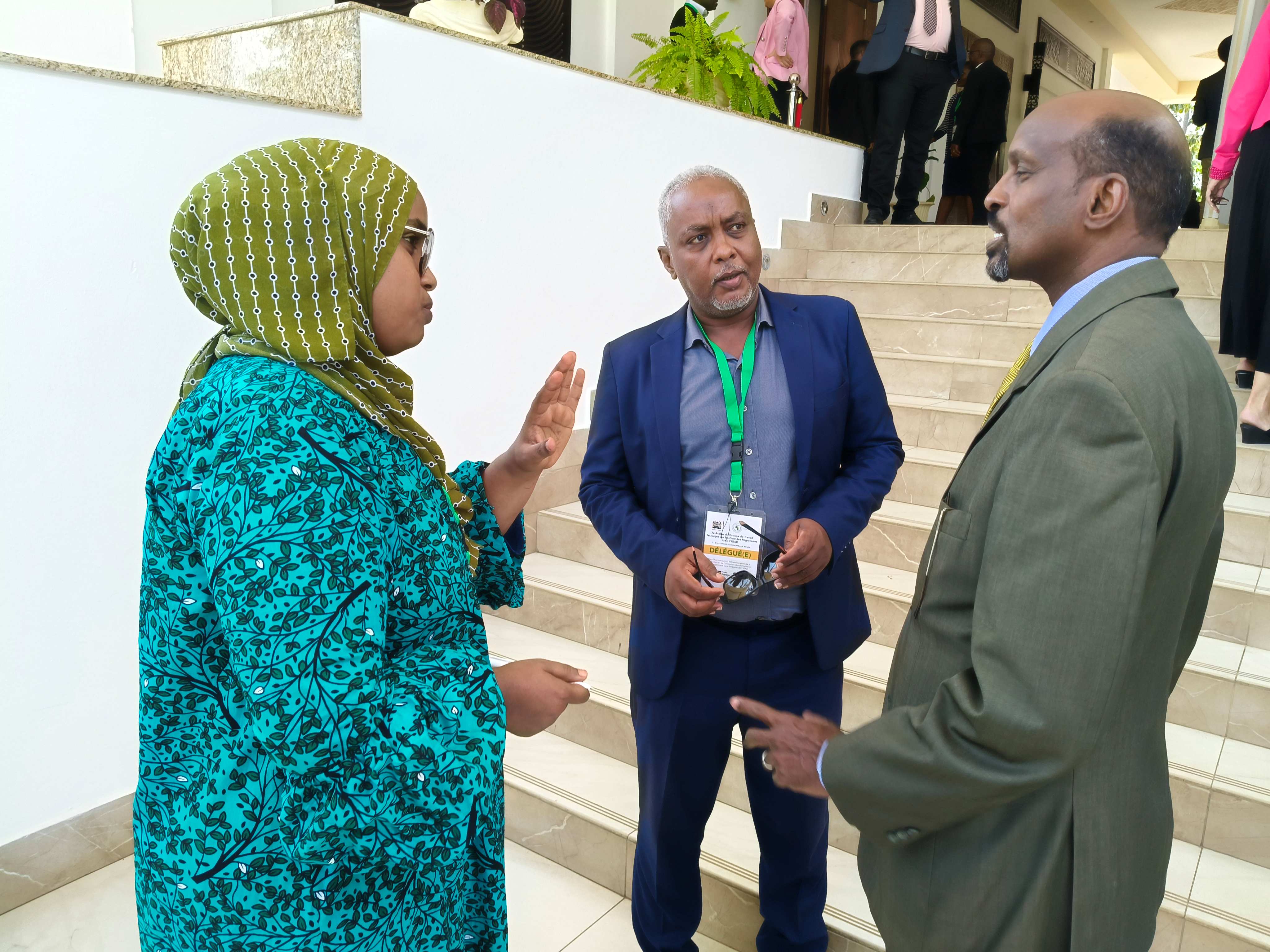

Djibouti
representatives Oumal Kaire, Habib Hamadou and IGAD director of health and
social development Moussa Meigague in Mommbasa on Monday / BRIAN OTIENO
The Intergovernmental Authority on
Development says there is an urgent need to strengthen data collection
and analysis on migrants across its eight member states to improve planning and
governance.
The region — comprising Djibouti,
Eritrea, Ethiopia, Kenya, Somalia, South Sudan, Sudan and Uganda — continues to
grapple with conflict, instability, and social turbulence that drive
large-scale migration, refugee movements and internal displacement.
Igad director of health and social development Moussa Meigague said capacity gaps and incoherent
policies have hampered the timely collection of reliable data, undermining
evidence-based decision-making.
“It is, therefore, imperative that we
have accurate, reliable and comparable migration and displacement statistics.
These are vital for understanding dynamics, formulating policies, and fostering
cooperation at national, regional and international levels,” he said in Mombasa
on Monday during the 7th Regional Migration Data Technical Working Group
meeting.
Meigague said Igad member
states were ramping up efforts to harmonise and improve migration and
displacement data, with a focus on transforming migration challenges into
opportunities. “We are already advancing in this area because we are
integrating refugees into our populations and giving them services like
education,” he said.
The move is expected to particularly
benefit Somalia, Sudan and South Sudan, where ongoing conflicts complicate
planning. The official stressed that migration and displacement remain defining features
of the region, requiring not just solidarity but also robust, harmonised data
to guide protection and development outcomes.
Despite the challenges, Igad has
made progress, including operationalising a regional strategy for statistics
development, publishing migration statistics reports, and setting up both the
Migration Data Technical Working Group and the Sub-Working Group on
Displacement Statistics.
Kenya National Bureau of Statistics acting director for population and social statistics, Rosemary Bowen,
said Kenya’s approach is to “humanise the statistics.” She explained that
migration data is collected through administrative systems, censuses and
surveys, with the Department of Refugee Services registering migrants and
refugees to ensure they access services.
“Migration data is not just about
numbers, it is about human lives and their economic, social, and political
needs,” she said.











